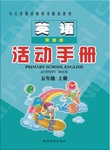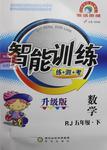
完形填空
American teenagers have always worked for extra pocket money. 1 their predecessors(前辈), today’s young people are 2 to work long hours during the week for hundreds of dollars each month. They spend the money 3 themselves rather than contributing it 4 their families. In a 1997 5 of 16000 high school seniors nationwide, it was 6 that eighty percent of students who worked 7 their earnings on their own 8 such as clothing, stereo equipment, records and movies. 9 five percent said they contributed most of their income, which often exceeded, $ 200 a month, to help pay family living 10 The benefits of this work-and-spend ethics(伦理观)are being 11 argued, Some experts, and many parents, 12 that year-round part-time employment increases youngsters’ 13 of worth, teaches them financial(财政的) 14 and reduces tension, and thus conflict(冲突) 15 the family. Other, 16 , argue that working teenagers are separated, physically and financially, 17 their families, which in turn 18 parental authority.
Teenagers’ schoolwork can also suffer.“When youngsters 19 for luxuries, they are buying distraction 20 education,”said a program director for the U.S.Department of Education. Working teenagers themselves say they have less time to spend with their friends and families.
|
(1)A.Rather than |
B.More than |
C.Instead of |
D.Other than |
|
(2)A.about |
B.fond |
C.likely |
D.possible |
|
(3)A.by |
B.on |
C.in |
D.for |
|
(4)A.to |
B.in |
C.among |
D.with |
|
(5)A.view |
B.inspection |
C.observation |
D.survey |
|
(6)A.suggested |
B.found |
C.reported |
D.advised |
|
(7)A.paid |
B.cost |
C.depended |
D.spent |
|
(8)A.requests |
B.needs |
C.demands |
D.way |
|
(9)A.Other |
B.Only |
C.Additional |
D.Further |
|
(10)A.expenses |
B.money |
C.values |
D.charges |
|
(11)A.partly |
B.heatedly |
C.thoroughly |
D.entirely |
|
(12)A.insist |
B.demand |
C.suggest |
D.require |
|
(13)A.sense |
B.knowledge |
C.learning |
D.feeling |
|
(14)A.accounts |
B.responsibility |
C.ability |
D.well-being |
|
(15)A.with |
B.within |
C.against |
D.for |
|
(16)A.furthermore |
B.therefore |
C.however |
D.besides |
|
(17)A.in |
B.with |
C.from |
D.by |
|
(18)A.weakens |
B.loses |
C.reduces |
D.destroys |
|
(19)A.ask |
B.make |
C.do |
D.work |
|
(20)A.from |
B.with |
C.in |
D.on |
(1) B
(2) C (3) B (4) A (5) D (6) B (7) D (8) B (9) B (10) A(11) B (12) A (13) A (14) B (15) B (16) C (17) C (18) A (19) D (20) A
(1) B
从下文的叙述来看,全文讲述了父母挣钱之外,美国的青少年也打工赚钱,因此用B表示“不只是,不仅仅”。(2) C be likely to do sth.表示有可能会做某事,与上下文的语气和句意相吻合,表示不只是他们的前辈,今天的年轻人也可能为了每个月几百美元而每周工作很长时间。(3) B 不是表示“自己花钱”,而是“把钱花在自己身上”,与下文的“而不是……”形成对比。(4) A contribute...to...固定短语,表示“把……奉献给……”。(5) D 从四个选项的词义来看,A表示“观点”,B表示“视察”,C表示“观察”。而本句的“全国性”“1997年”等词表明这应该是全国范围的调查。(6) B 下文是调查中反映出的数字变化,不是人们的建议、劝诫,也不是report,而是人们透过数字的“发现”。(7) D 从下文的叙述(比如衣服、听力设备、录音机)可知他们把打工赚的钱,花在这些方面。(8) B 钱花到买衣服、买立体声录音机等个人需求上。(9) B 与上文的80%对比,只有5%的人这么做。(10) A 帮助支付家庭生活开支。living expenses表示“(日常)生活开支”,expense表示“花费”。(11) B 一场激烈的争论,heated表示“热烈的,激烈的”,在本句用副词形式作状语。(12) A 既然是激烈的争论,有些人坚持这种观点,表示“坚持”用A,此时从句不用虚拟语气而是陈述语气。(13) A sense表示“理念,观念,感觉”,sense of worth表示“价值观”。(14) B 此时在讲述让孩子学习之余打工赚钱的益处,可以培养他们在经济/理财方面的责任感。(15) B 家庭内部由于经济紧张引发的冲突,用within或in表示“家庭内部”。(16) C 此时讲述反对派的观点,用C引起上下文,表转折。(17) C be separated from表示“与……隔离开”。(18) A 孩子打工赚钱,这使他与家人有了经济上和情感上的隔阂,这样一来这种情况就削弱了家长的权威。weaken表示“使……减弱”,与“强化”相对,而C表示“减少”,语意不符合上下文。(19) D 他们工作的目的是为了享受。(20) A 他们买到的是从学业上分心,即偏离了其初衷,违背了教育的本质。

 互动课堂系列答案
互动课堂系列答案 激活思维智能训练课时导学练系列答案
激活思维智能训练课时导学练系列答案科目:高中英语 来源:高中课程新学案 高中三年级、英语 题型:054
| |||||||||||||||||||||||||||||||||||||||||||||||||||||||||||||||||||||||||||||||||||||||||||||||||||||||||||||||||||||||||||||||||||||||||||||||||||||||||||||||||||||||||||||||||||||||||||||||||||||||||||||||||||||||||||||||||||||||||||||||||||||||||||||||||||||||||||||||||||||||||||
查看答案和解析>>
科目:高中英语 来源:英语教研室 题型:054
完形填空.
Some people do not like anything to be out of order. They are ___1___ late for work. They ___2____ the books to the library on time. They remember people's birthdays, and they pay the bills the moment they ____3____ Mr Dodds is ____4____ a man.
Mr Dodds works in a bank, and lives ____5____ his own. The only family is in the next town; his sister lives there with her ____6___, and her son ___7____ Mark. Mr Dodds doesn't see his sister, or _____8__ family, from one year to the next. He sends them Christmas cards, and he has not forgotten one of ____9____ seventeen birthdays.
last week Mr Dodds had quite an incident. He drove home from his office at the ____10___ time, ____11___ neither too slowly _____12____ too fast. He parked his car where he ___13____ parked it, out of the other cars, and he went ___14____ to make his evening meal. Straight away, there was a ____15___ at the door. Mr Dodds _____16___ the door, to find a policeman ____17____ on the doorsteps.
“What have I done ____18____?” Mr Dodds asked himself. “Have I ____19___ on the wrong side of the road? Has there been some trouble at the bank? Have I forgotten to pay an important bill?”
“Hello!____20___,” said the policeman, “my name is Mark.”
查看答案和解析>>
科目:高中英语 来源:黄冈重点作业 高一英语(下) 题型:054
完形填空:
Three men came to Dover Station at about nine o'clock one evening. They asked the assistant what time the next train was for London. The assistant said, “You've just 1 one. They go every hour. The next one is at ten o'clock. ”“That is 2 ,”they said, “we'll go and have a drink.”So they went to the nearest bar. A minute or two after ten o'clock, they came 3 and said to the assistant, “Has the train gone?” “Yes,” he said, “it went at ten o'clock 4 I told you. The next is at eleven o'clock.”
“That's OK,” they said, “we'll go and have another 5 .”So they went back to the bar.
They missed the eleven o'clock train in 6 way, and the assistant said, “Now, the next train is the 7 one; If you miss that, you 8 to London tonight.”
Twelve o'clock came, and the last train 9 out, when 10 of them came out of the bar running as hard as they 11 . Two of them got into a carriage just 12 the train was leaving but the third one didn't run 13 , and the train went out leaving him 14 . He stood there looking at the train and 15 , as if 16 a train was the best joke (玩笑) in the world. The assistant went up to him and said, “I told you that this was the last train. Why didn't you come 17 ?”
The man couldn't answer because of laughing. He laughed 18 the tears came into his eyes. Then he said, “Did you see those two fellows 19 into the train and leave me here?”
“Yes, I saw them,” said the assistant.
“Well, I was the one who was going to London; they only came 20 to see me off!”
1.
[ ]
2.
[ ]
3.
[ ]
4.
[ ]
5.
[ ]
6.
[ ]
7.
[ ]
8.
[ ]
9.
[ ]
10.
[ ]
11.
[ ]
12.
[ ]
13.
[ ]
14.
[ ]
15.
[ ]
16.
[ ]
17.
[ ]
18.
[ ]
19.
[ ]
20.
[ ]
查看答案和解析>>
科目:高中英语 来源: 题型:054
完形填空.
One afternoon just before Christmas, an old gentleman was wandering through the city center. The shops were packed ___1___ good things and ___2___ with cheerful shoppers. The children were gazing in wonder at all the toys on show in the ___3___. Suddenly in the middle of the crowd he saw a dirty little boy sitting on the pavement ___4____ bitterly. When the kind old man asked him why he was crying, the little boy told him that he had ___5___ a ten penny piece that his uncle had given him. Thrusting his hand into his ___6___ the old man pulled out a handful of coins. He ___7__ a shiny, new ten penny ___8___ and handed it to the boy. “___9___” said the little boy , drying his ___10___, he cheered ___11___ at once.
An hour ___12___ later the old man was ___13___ his way back the same route. To his ___14___ he saw the same dirty little boy in the same spot, crying just as bitterly as before. He went up __15___ the boy and asked him if he had lost ten pence he had given him. The little boy told him that ___16___ he had not lost the ___17__ coin, but he still could not find his first ten pence. “If I ___18____ find my own ten pence,”he said___19__,“I'd have___20___ pence now.”
查看答案和解析>>
科目:高中英语 来源:内蒙古包头33中学2009-2010学年高一上学期期中考试英语试题 题型:054
| |||||||||||||||||||||||||||||||||||||||||||||||||||||||||||||||||||||||||||||||||||||||||||||||||||||||||||||||||||||||||||||||||||||||||||||||||||||||||||||||||||||||||||||||||||||||||||||||||||||||||||||||||||||||||||||||||||||||||||||||||||||||||||||||||||||||||||||||||||||||||||
查看答案和解析>>
湖北省互联网违法和不良信息举报平台 | 网上有害信息举报专区 | 电信诈骗举报专区 | 涉历史虚无主义有害信息举报专区 | 涉企侵权举报专区
违法和不良信息举报电话:027-86699610 举报邮箱:58377363@163.com